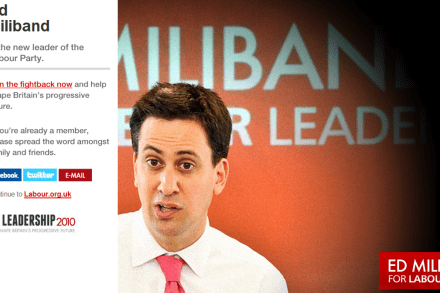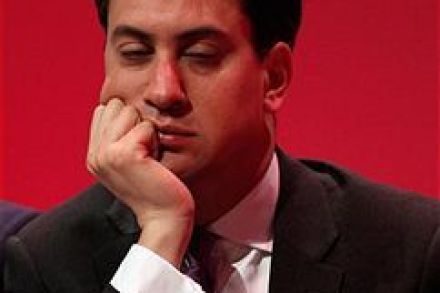Behind the times
Anyone who isn’t interested in political party websites look away now. For both of you remaining, then it’s worth adding to Ben Brogan’s observation about Labour’s site. The photograph of Ed Miliband that greets you upon clicking here isn’t the best, he notes (perhaps MiliE should have used this image instead). But there’s more: at time of writing, the pages for the leadership election are still available, and Harriet Harman is still logged as the leader of the Labour party. These are only small faults, sure. No doubt it will all be fixed in the next couple of days. But it underlines a point that is whirling around Wonkland at
















